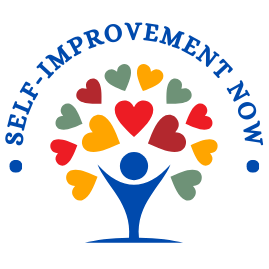Discover Your True Potential: Seven Effective Strategies for Self-Improvement
Discover Your True Potential: Seven Effective Strategies for Self-Improvement
Are you tired of feeling stuck in a rut? Do you find yourself yearning for more in life, but unsure of how to unlock your full potential? Look no further! In this blog post, we will delve into seven powerful strategies that can help you embark on a journey of self-improvement and discover the incredible capabilities that lie within you.
It’s no secret that we all have untapped potential waiting to be unleashed. Yet, so often, we find ourselves held back by self-doubt, fear, or a lack of direction. The good news is that you have the power to break free from these limitations and become the best version of yourself.
Throughout this post, we will explore practical techniques and mindset shifts that have proven to be effective in personal growth. From goal setting and positive affirmations to developing resilience and embracing failure, each strategy is designed to empower you on your path to self-improvement.
Imagine waking up every day with a renewed sense of purpose and confidence, knowing that you are actively working towards your goals and becoming the person you aspire to be. This is not a far-fetched dream, but a tangible reality within your grasp.
So, if you’re ready to take charge of your life and unleash your true potential, join us on this transformative journey. Together, we will unravel the secrets to personal growth and equip you with the tools you need to create lasting positive change. It’s time to step into the best version of yourself and embrace a future filled with endless possibilities.
Stay tuned for the upcoming sections where we will dive deeper into each strategy, providing you with actionable steps and insightful tips to maximize your self-improvement journey. Get ready to unlock your true potential and embark on a remarkable transformation.
Set Clear Goals
Setting clear goals is an essential step in the journey of self-improvement. Without clearly defined objectives, it’s easy to get lost or feel overwhelmed. In this section, we will explore two key strategies to help you set clear goals: defining your objectives and breaking goals into smaller tasks.
Define Your Objectives
Before you can start making progress, it’s crucial to know what you want to achieve. Take a moment to reflect on your aspirations, whether they are related to your personal life, career, or health. What do you truly want to accomplish? By clearly defining your objectives, you gain clarity and purpose.
To define your objectives, ask yourself specific questions:
- What is my ultimate goal?
- What steps do I need to take to achieve it?
- What resources or skills do I need to acquire?
- How will I measure my progress?
By answering these questions, you can narrow down your focus and outline the necessary steps toward your goals. Remember, be specific and realistic when setting objectives to ensure they are attainable.
Break Goals into Smaller Tasks
Once you have clearly defined your objectives, it’s time to break them down into smaller, manageable tasks. Big goals can be intimidating and may lead to procrastination or a sense of overwhelm. Breaking them down into bite-sized tasks makes them more approachable and increases your chances of success.
Consider the following steps when breaking down your goals:
- Identify the major milestones: Break your main goal into significant milestones or checkpoints along the way. These milestones will serve as indicators of progress and help you stay motivated.
- Create a timeline: Assign deadlines to each milestone and establish a realistic timeline for completing each task. Having a clear timeline provides structure and keeps you accountable.
- Divide tasks into smaller actions: Take each milestone and break it down into smaller actions or to-do items. These tasks should be specific, actionable, and measurable. For example, if your goal is to run a marathon, your tasks could include researching training programs, purchasing running gear, and scheduling regular workouts.
By breaking your goals into smaller tasks, you create a roadmap that guides you toward success. Each completed task brings you one step closer to your ultimate objective.
 (Photo by Jill Wellington)
(Photo by Jill Wellington)
Now that we’ve explored the importance of setting clear goals, and the strategies of defining objectives and breaking them down into smaller tasks, you are ready to embark on your self-improvement journey. The next section will focus on another effective strategy: cultivating a growth mindset. Stay tuned for more empowering insights and strategies to help you discover your true potential.
Cultivate a Growth Mindset
Embrace Challenges and Learn from Failure
In order to discover your true potential, it is essential to cultivate a growth mindset. This mindset is characterized by the belief that abilities and intelligence can be developed through effort, practice, and learning. By adopting a growth mindset, you open yourself up to new possibilities and opportunities for self-improvement.
Embracing challenges
Embracing challenges is a fundamental aspect of a growth mindset. Rather than shying away from difficult tasks, you should view them as opportunities for growth and learning. Challenges push you to step outside of your comfort zone and develop new skills. Embracing challenges not only expands your abilities but also boosts your confidence and resilience.
Learning from failure
Failure is an inevitable part of life, but it is how you respond to failure that truly matters. Instead of viewing failure as a setback or a sign of incompetence, see it as a valuable learning experience. Take the time to reflect on your failures, identify the lessons learned, and use them as stepping stones towards improvement. Embracing failure as a necessary part of the journey helps you develop resilience and the ability to bounce back stronger.
Stay Persistent and Resilient
Developing a growth mindset also means staying persistent and resilient in the face of obstacles. It’s easy to get discouraged or give up when things don’t go as planned, but it’s important to remember that success rarely comes without setbacks.
Persistence is key
Persistence is the key to achieving your goals and realizing your true potential. It involves staying focused on your objectives and not letting obstacles or failures deter you. When faced with challenges, remind yourself of your commitment to personal growth and use that as motivation to keep pushing forward. With perseverance, you can overcome any hurdle that comes your way.
Building resilience
Resilience is the ability to adapt to and recover from adversity. Cultivating resilience allows you to bounce back from setbacks with strength and determination. Develop strategies to help you cope with stress, setbacks, and disappointments. Surround yourself with a support system that uplifts and encourages you during difficult times. By building resilience, you become better equipped to navigate through the ups and downs of your self-improvement journey.
By embracing challenges, learning from failure, staying persistent, and building resilience, you can cultivate a growth mindset that will propel you towards reaching your true potential. Adopting this mindset opens doors to endless possibilities and allows you to continuously evolve and thrive in your personal and professional development.
 (Photo by Riccardo)
(Photo by Riccardo)
Develop a Positive Attitude
Having a positive attitude is essential for self-improvement and personal growth. It can greatly impact your overall well-being and outlook on life. In this section, we will explore two effective strategies for developing and maintaining a positive attitude: practicing gratitude and appreciation, and surrounding yourself with positive influences.
Practice Gratitude and Appreciation
 (Photo by Simon Berger)
(Photo by Simon Berger)
Practicing gratitude and appreciation involves recognizing and acknowledging the good things in your life, big or small. It’s about shifting your focus from what’s wrong or lacking to what you already have and cherishing those aspects. Here are a few ways you can incorporate gratitude and appreciation into your daily routine:
- Keep a gratitude journal: Take a few minutes each day to write down three things you are grateful for. This simple act helps shift your mindset towards positivity and cultivates a sense of gratitude.
- Express gratitude to others: Send a thank-you note, give a genuine compliment, or simply say “thank you” to someone who has made a positive impact in your life. Not only does this brighten their day, but it also fosters a positive connection.
- Reflect on the good: Before going to bed, take a moment to reflect on the positive experiences, achievements, or moments of joy you had throughout the day. This practice helps you focus on the positive aspects of your life and cultivate a grateful mindset.
By practicing gratitude and appreciation, you train your mind to look for the good in every situation, which can lead to a more positive and fulfilling life.
Surround Yourself with Positive Influences
 (Photo by Anna Shvets)
(Photo by Anna Shvets)
The people we surround ourselves with play a significant role in shaping our attitudes and outlook on life. It’s essential to surround yourself with positive influences that uplift and inspire you. Here are a few ways to do that:
- Choose your circle wisely: Surround yourself with individuals who radiate positivity and share similar goals and values. Seek out friends and mentors who motivate and support you on your self-improvement journey.
- Limit exposure to negativity: Minimize your exposure to negative influences such as toxic relationships, pessimistic individuals, or distressing news. Surrounding yourself with negativity can impact your attitude and drain your energy.
- Seek inspiration: Engage with uplifting content, such as motivational books, podcasts, or online communities. Surrounding yourself with positive messages and stories can significantly influence your mindset and inspire personal growth.
Remember, the company you keep can either lift you up or bring you down. By choosing positive influences, you create an environment that fosters personal development and supports a positive attitude.
Developing a positive attitude requires conscious effort and consistent practice. By incorporating gratitude and appreciation into your daily life and surrounding yourself with positive influences, you pave the way for personal growth and self-improvement. Stay tuned for the next section where we will explore another effective strategy for discovering your true potential.
Improve Time Management Skills
Efficient time management is essential for personal growth and productivity. Without proper control over our time, it’s easy to feel overwhelmed and lose sight of our goals. In this section, we will explore two effective strategies for improving time management skills: prioritizing tasks and avoiding procrastination, and setting realistic deadlines and sticking to them.
Prioritize Tasks and Avoid Procrastination
When faced with a long list of tasks, it can be challenging to determine where to start. Prioritizing tasks is crucial in ensuring that you focus on what truly matters. Here are some practical tips to help you prioritize effectively and avoid falling victim to procrastination:
- Make a to-do list: Begin by creating a detailed to-do list that includes all your tasks. Breaking down your responsibilities into smaller, manageable chunks can make them feel less daunting.
- Identify urgent and important tasks: Differentiate between urgent and important tasks. Urgent tasks require immediate attention, while important tasks contribute directly to your long-term goals. Focus on completing urgent and important tasks first.
- Use the Eisenhower Matrix: The Eisenhower Matrix, also known as the Urgent-Important Matrix, is a valuable tool for prioritizing tasks. Categorize your tasks into four quadrants: urgent and important, important but not urgent, urgent but not important, and neither urgent nor important. This matrix helps you allocate your time and energy effectively.
- Eliminate distractions: Identify and eliminate distractions that hinder your productivity, such as social media notifications or excessive multitasking. Create a conducive work environment that allows you to stay focused and engaged.
Set Realistic Deadlines and Stick to Them
Setting realistic deadlines is essential for managing time effectively. Unrealistic or overly optimistic deadlines often lead to stress, rushed work, and subpar results. Follow these tips to set realistic deadlines and maintain consistency:
- Break tasks into smaller milestones: Instead of setting a single deadline for a massive project, break it down into smaller, manageable milestones. This approach helps you track progress and prevents tasks from piling up at the last minute.
- Consider your capacity and limitations: Understand your capabilities and limitations when setting deadlines. Factor in external commitments, complexities, and unforeseen obstacles that may arise. Be realistic and give yourself enough time to complete tasks without unnecessary pressure.
- Use a planner or task management tool: Utilize digital or physical planners, or task management tools to schedule and organize your tasks. These tools provide visual representation of your deadlines, making it easier to stay on track.
- Accountability and commitment: Hold yourself accountable for meeting deadlines. Make a commitment to yourself and treat deadlines as promises. By fostering a sense of responsibility, you’ll be more likely to stick to your schedules.
Keep in mind that improving time management skills takes practice and discipline. It’s okay to have occasional setbacks, but the key is to learn from them and continue striving for better time management habits. By prioritizing tasks effectively and setting realistic deadlines, you’ll find yourself becoming more productive and achieving your goals with greater efficiency.
 (Photo by Henry & Co.)
(Photo by Henry & Co.)
Enhance Your Communication Skills
Effective communication is essential for personal and professional growth. It allows us to connect with others, express our ideas clearly, and understand the perspectives of those around us. In this section, we will explore some effective strategies to enhance your communication skills.
Active Listening and Effective Speaking
Photo of Soldier Wearing Black Facemask (Photo by RDNE Stock project)
Effective communication starts with active listening. By actively listening, we give our full attention to the speaker and strive to understand their message. Here are a few tips for active listening:
- Maintain eye contact and nod to show your engagement.
- Avoid interrupting and allow the speaker to finish before responding.
- Ask clarifying questions to ensure you understand their meaning.
- Summarize what you’ve heard to confirm your understanding.
On the flip side, effective speaking involves expressing yourself clearly and succinctly. To improve your speaking skills, keep these tips in mind:
- Be confident and articulate your thoughts clearly.
- Use a conversational tone and avoid jargon or technical language.
- Pay attention to your body language and use appropriate gestures.
- Practice active listening when engaged in conversations.
By actively listening and speaking effectively, you can establish better connections and foster meaningful conversations.
Non-Verbal Communication and Body Language
 (Photo by Andrea Piacquadio)
(Photo by Andrea Piacquadio)
Non-verbal communication plays a significant role in our day-to-day interactions. It includes facial expressions, gestures, posture, and tone of voice. Here are some key aspects to consider:
- Facial expressions: Smile, maintain a pleasant and approachable facial expression to convey warmth and openness.
- Gestures: Use hand movements and gestures to emphasize key points and add clarity to your message.
- Posture: Stand or sit upright to appear confident and attentive. Avoid crossing your arms, as it can be perceived as defensive or disinterested.
- Tone of voice: Vary your tone to reflect different emotions or emphasize important aspects of your message.
Remember, non-verbal cues can sometimes speak louder than words. Paying attention to your body language and non-verbal communication can greatly enhance your overall communication skills.
In conclusion, enhancing your communication skills involves active listening, effective speaking, and understanding the importance of non-verbal communication. By employing these strategies, you can build stronger connections, avoid misunderstandings, and empower yourself to express your thoughts and ideas more effectively.
Embrace Continuous Learning
In today’s fast-paced and ever-changing world, embracing continuous learning is crucial for personal growth and self-improvement. By seeking new knowledge and expanding our understanding, we can unlock our true potential and discover new possibilities for success. In this section, we will explore two effective strategies for embracing continuous learning: reading widely and seeking new knowledge, and taking courses and attending workshops.
Read Widely and Seek New Knowledge
 (Photo by Maël BALLAND)
(Photo by Maël BALLAND)
Reading widely and seeking new knowledge is a powerful way to broaden our horizons and enhance our skills. Whether it’s books, articles, or online resources, there is a wealth of information waiting to be discovered. Here are some ways to make the most of your reading habit:
- Diversify your reading materials: Don’t limit yourself to a single genre or subject. Explore a variety of topics to expand your understanding of different subjects and perspectives.
- Set aside dedicated time: Make reading a regular habit by setting aside specific time each day or week. This will help you prioritize learning and ensure that you make progress.
- Take notes and reflect: As you read, take notes on key insights and reflect on how the information applies to your life or goals. This active engagement will deepen your understanding and help you apply what you’ve learned.
By reading widely and seeking new knowledge, you can stay informed, gain fresh perspectives, and continually expand your skillset.
Take Courses and Attend Workshops
 (Photo by Anna Shvets)
(Photo by Anna Shvets)
While self-study through reading is valuable, sometimes we need more structured learning experiences to fully develop our skills. Taking courses and attending workshops provide opportunities to learn from experts, engage in hands-on activities, and connect with like-minded individuals. Here’s how you can make the most of these learning opportunities:
- Identify your areas of interest: Determine the specific skills or knowledge you want to acquire or improve. This will help you choose relevant courses or workshops that align with your goals.
- Research reputable providers: Look for reputable institutions, online platforms, or industry experts who offer courses or workshops in your desired field. Check reviews and ratings to ensure the quality of the content.
- Engage actively: During the course or workshop, actively participate in discussions, ask questions, and take part in practical exercises. The more engaged you are, the more you will benefit from the learning experience.
- Network and collaborate: Take advantage of the opportunity to connect with fellow learners and instructors. Collaborating with others who share your interests can provide valuable insights, support, and potential future collaborations.
By taking courses and attending workshops, you can gain practical skills, expand your professional network, and stay up-to-date with the latest industry trends.
Continuously learning through reading widely, seeking new knowledge, taking courses, and attending workshops will empower you to discover and unlock your true potential. Remember, learning is a lifelong journey, so embrace every opportunity to grow and evolve.
Take Care of Your Physical and Mental Well-being
Taking care of your physical and mental well-being is crucial for achieving your true potential. In this section, we will explore two essential strategies that can significantly enhance your self-improvement journey: exercising regularly and maintaining a healthy diet, and practicing mindfulness and self-care. By incorporating these practices into your daily routine, you’ll pave the way for personal growth and self-discovery.
Exercise Regularly and Maintain a Healthy Diet
 (Photo by Mikhail Nilov)
(Photo by Mikhail Nilov)
Engaging in regular exercise and maintaining a healthy diet can have a profound impact on your overall well-being. Physical activity not only improves your physical health but also enhances your mental and emotional state. When you exercise, your body releases endorphins, which are known as the “feel-good” hormones. These endorphins can help reduce stress, boost your mood, and increase your energy levels.
To get started, find an exercise routine that suits your preferences and fits into your schedule. Whether it’s going for a jog, attending fitness classes, or practicing yoga at home, choose activities that you enjoy and can commit to consistently. Remember, the key is to find something that brings you joy and motivates you to stay active.
In addition to exercise, it’s equally important to maintain a healthy diet. Fueling your body with nutritious and balanced meals can provide the energy and nutrients needed for optimal mental and physical functioning. Incorporate plenty of fruits, vegetables, whole grains, lean proteins, and healthy fats into your diet.
Avoid processed foods, sugary snacks, and excessive consumption of caffeine or alcohol. These can lead to energy crashes, mood swings, and decreased focus. By nourishing your body with wholesome foods, you’ll feel more energized, focused, and ready to tackle the challenges of self-improvement.
Practice Mindfulness and Self-Care
 (Photo by Asad Photo Maldives)
(Photo by Asad Photo Maldives)
In the fast-paced and demanding world we live in, it’s easy to neglect our mental and emotional well-being. However, taking the time to practice mindfulness and self-care is essential for personal growth and self-improvement.
Mindfulness involves being fully present in the moment and paying attention to your thoughts, feelings, and surroundings without judgment. By practicing mindfulness, you can cultivate self-awareness, reduce stress and anxiety, and enhance your overall mental well-being.
There are various techniques you can try to incorporate mindfulness into your daily life. Meditation, deep breathing exercises, and journaling are effective ways to quiet your mind, gain clarity, and foster a sense of inner peace. Find a method that resonates with you and make it a habit to practice regularly.
Self-care goes hand in hand with mindfulness. It’s about prioritizing your own needs and ensuring you give yourself the nurture and care you deserve. Take time to engage in activities that bring you joy and relaxation, whether it’s reading a book, taking a warm bath, practicing a hobby, or spending quality time with loved ones.
Remember, self-care is not indulgent; it is essential for maintaining a healthy work-life balance and preventing burnout. By incorporating self-care practices into your routine, you’ll recharge your batteries, boost your mood, and cultivate a positive mindset that propels you forward on your journey of self-improvement.
In conclusion, prioritizing your physical and mental well-being is crucial for unlocking your true potential. By exercising regularly, maintaining a healthy diet, practicing mindfulness, and engaging in self-care, you’ll create a solid foundation for personal growth and self-improvement. Take the time to nurture your body and mind, and you’ll witness profound positive changes in all aspects of your life.
Conclusion
In conclusion, discovering your true potential is a journey that requires dedication, perseverance, and a willingness to step outside of your comfort zone. By implementing these seven effective strategies for self-improvement, you can unlock your hidden talents and achieve personal growth.
Firstly, setting clear goals is essential. By defining what you want to achieve, you can create a roadmap to success and stay focused on your objectives. Secondly, cultivating a positive mindset is crucial. Believe in yourself and your abilities, and never let self-doubt hold you back.
Thirdly, continuous learning is key. Embrace new experiences, acquire new knowledge, and challenge yourself to grow intellectually. Fourthly, surround yourself with supportive individuals who inspire and motivate you. By building a strong network, you can learn from others and push each other towards greatness.
Fifthly, practice self-care and prioritize your well-being. Taking care of your physical and mental health is vital for personal growth. Sixthly, embrace failure as a learning opportunity. Don’t be discouraged by setbacks but rather use them as stepping stones towards success.
Lastly, be persistent in your efforts. Rome wasn’t built in a day, and neither will your personal transformation. Stay committed, stay focused, and keep pushing forward.
Remember, self-improvement is a lifelong journey, and there will be ups and downs along the way. Embrace the process, celebrate small victories, and never stop striving for your true potential.
So, go out there and take the first step towards unlocking your true potential. The power to change lies within you, and with these seven effective strategies, you can embark on a transformative journey of self-improvement.


